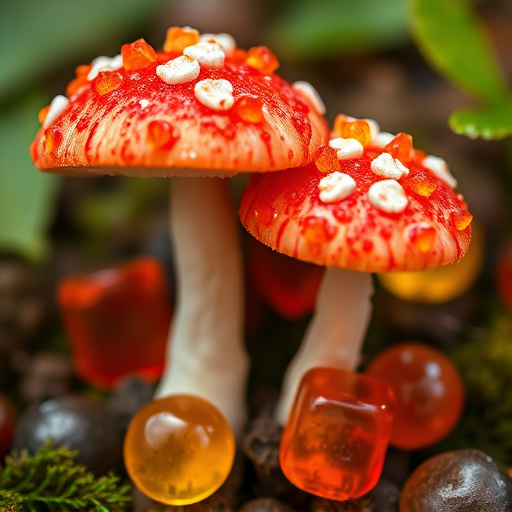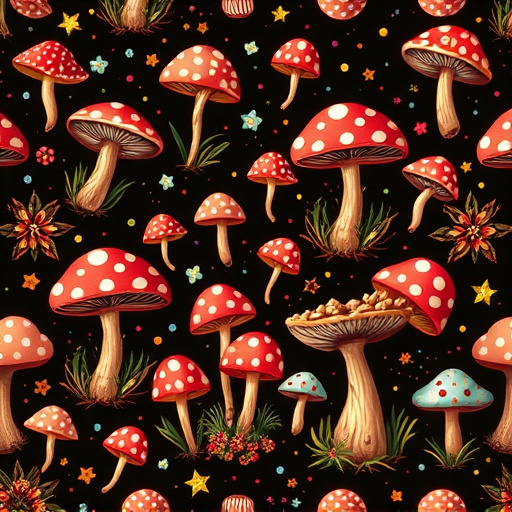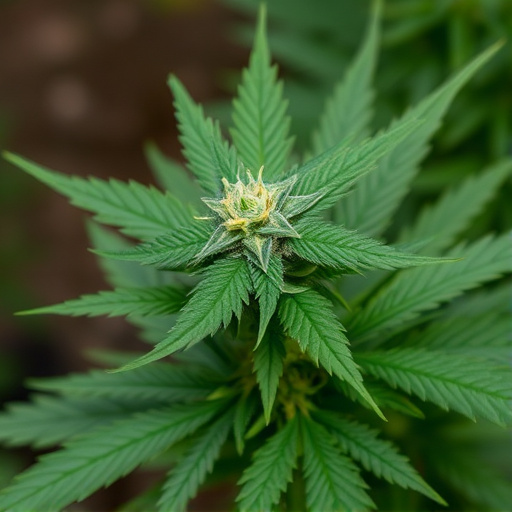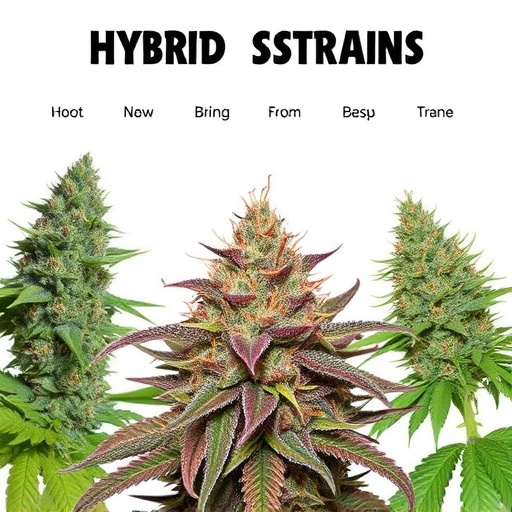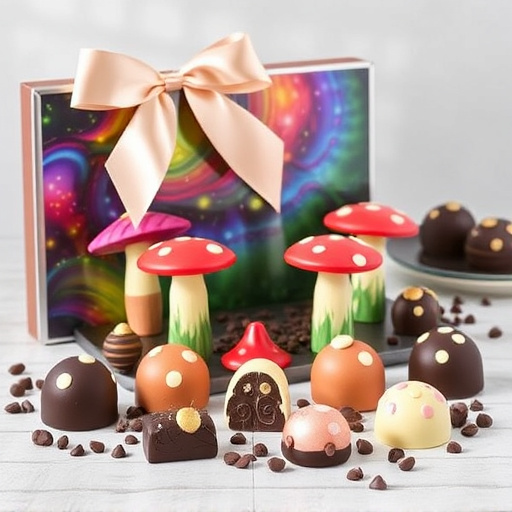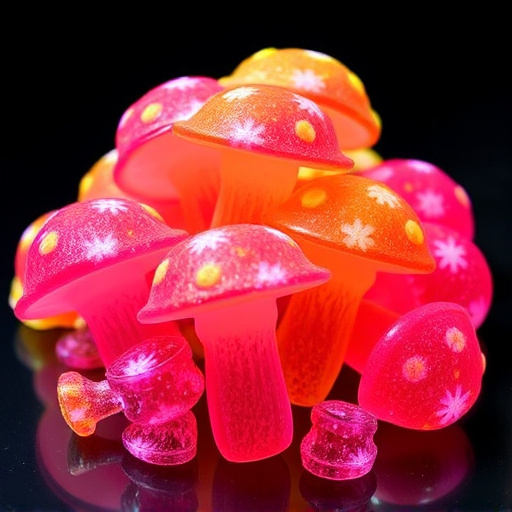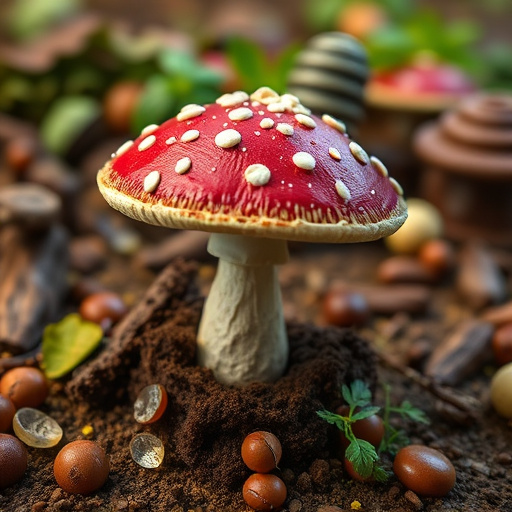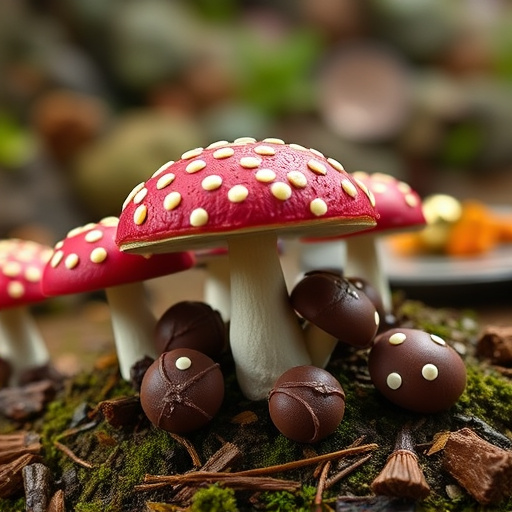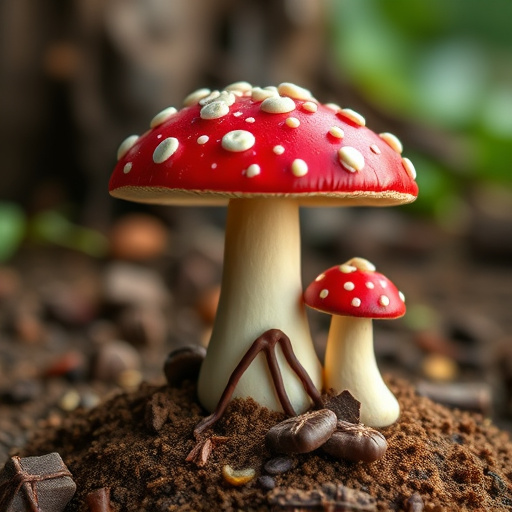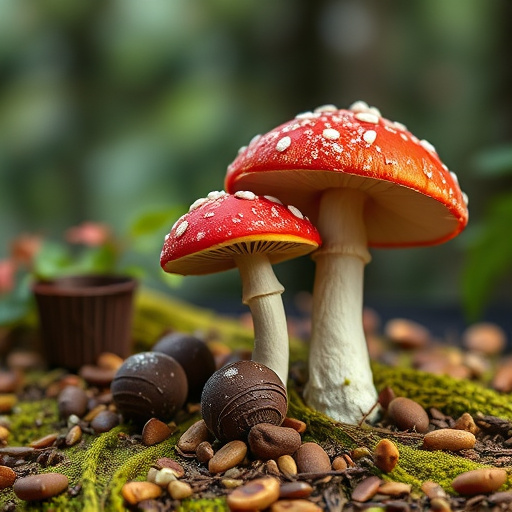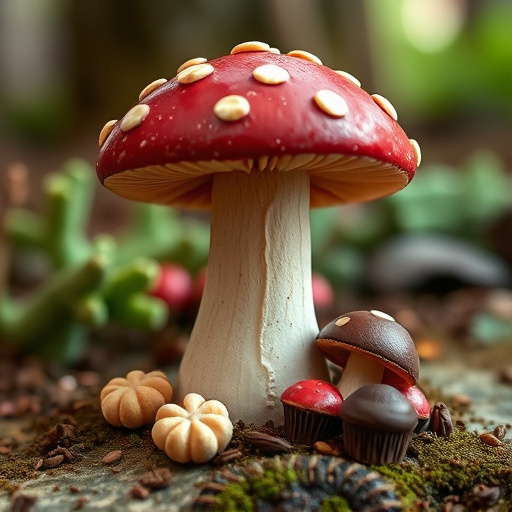Magic mushroom chocolates, enriched with psilocybin, offer a promising path to self-understanding and healing. These fungi interact with brain receptors, inducing altered states that enhance creativity, promote introspection, and facilitate deeper emotional processing. Research highlights their potential in treating depression, anxiety, and trauma by exploring the brain's default mode network, providing unique insights into thoughts and memories. As alternative therapeutic tools, magic mushroom chocolates showcase the power of these compounds in fostering personal growth and self-discovery.
Unleash your mind and embark on a journey of self-discovery with the intriguing world of magic mushroom chocolates. This innovative approach combines the therapeutic potential of psilocybin, the key compound in magic mushrooms, with the delightful sensory experience of fine chocolate. In this article, we explore how these unique treats can facilitate focus, enhance self-awareness, and foster personal growth through the science-backed benefits of their active ingredients.
- The Science Behind Magic Mushrooms and Their Effect on the Brain
- – Exploring the chemical composition of magic mushrooms (psilocybin)
- – How psilocybin interacts with serotonin receptors in the brain
The Science Behind Magic Mushrooms and Their Effect on the Brain
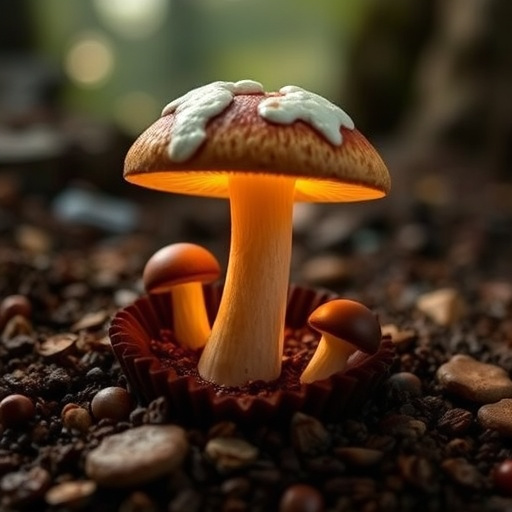
The science behind magic mushrooms and their effect on the brain is a fascinating realm of exploration. These fungi, known for their psychedelic properties, have been the subject of extensive research due to their potential to induce altered states of consciousness. When consumed, compounds like psilocybin present in magic mushrooms interact with specific receptors in our brains, leading to changes in perception and thought patterns. This interaction can enhance creativity, promote self-reflection, and facilitate deeper understanding of one’s thoughts and emotions—a phenomenon often described as a “magic mushroom chocolate for self-understanding.”
Studies have shown that controlled doses of psilocybin can prompt what’s known as a “mushroom experience,” characterized by heightened sensory perception, synesthetic-like responses (blending of senses), and profound emotional insights. Research suggests these experiences may hold therapeutic value in treating conditions like depression, anxiety, and trauma. The brain’s default mode network, associated with self-referential thinking, appears to be altered during these trips, offering a unique opportunity for introspection and personal growth.
– Exploring the chemical composition of magic mushrooms (psilocybin)
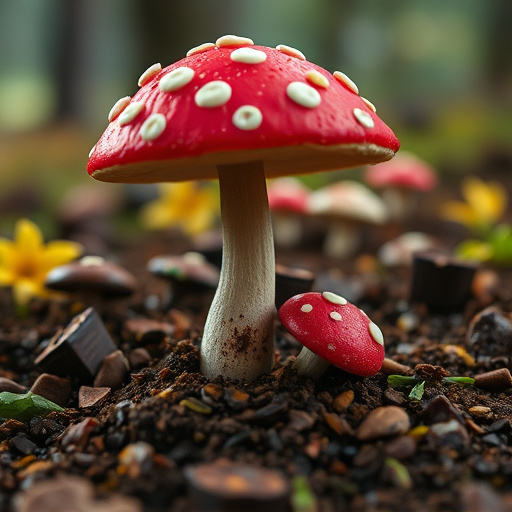
Magic mushrooms, scientifically known as Psilocybe cubensis, contain powerful compounds that have long intrigued both scientists and enthusiasts alike. The key active ingredient is psilocybin, a naturally occurring psychedelic compound. When consumed, psilocybin breaks down in the body to form psilocin, which interacts with serotonin receptors in the brain, leading to altered perceptions and heightened consciousness. This unique chemical composition has sparked interest in its potential therapeutic applications, including facilitating self-understanding and personal growth.
Research suggests that psilocybin can induce a state of profound introspection, allowing individuals to explore their thoughts, emotions, and memories in a new light. In controlled settings, magic mushroom chocolates have been used as a tool for therapeutic purposes, helping users gain insights into their mental health, overcome fears, and enhance overall well-being. The experience often described as mystical or spiritual can lead to profound personal revelations, making magic mushrooms an intriguing subject of study for those seeking alternative methods of self-discovery and focus.
– How psilocybin interacts with serotonin receptors in the brain
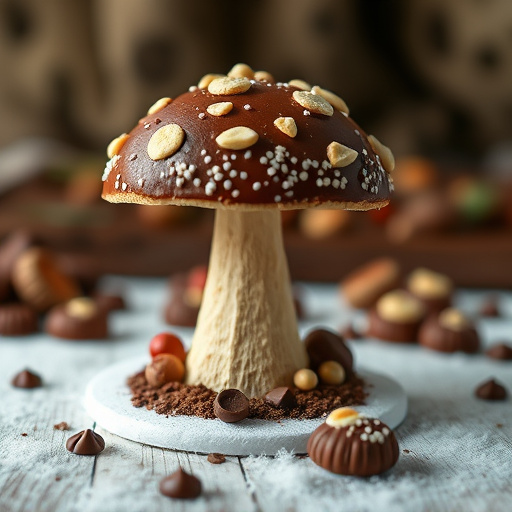
Psilocybin, the active compound found in magic mushrooms, has a fascinating interaction with serotonin receptors in the brain. Serotonin is a neurotransmitter that plays a key role in mood, cognition, and perception. When psilocybin enters the brain, it gets converted into psilocin, which binds to specific serotonin receptors, primarily 5-HT2A receptors. This binding triggers a cascade of neurochemical events, leading to altered states of consciousness and enhanced cognitive processing.
In the context of Magic Mushroom Chocolates for Self-Understanding, this interaction is what many people associate with the potential therapeutic benefits of psilocybin. By modulating serotonin levels, psilocybin can facilitate deeper introspection, increased creativity, and heightened emotional awareness. These effects have been explored in clinical settings for their potential in treating conditions like depression, anxiety, and post-traumatic stress disorder (PTSD), where exploring the mind and gaining new perspectives may be beneficial.
Magic mushroom chocolates may offer more than just a pleasant experience—they could potentially facilitate self-understanding and focus. The scientific understanding of psilocybin’s interaction with serotonin receptors suggests that it can unlock new perspectives and enhance cognitive functions, making it a promising tool for personal growth and mental clarity. While further research is needed, these findings underscore the potential therapeutic benefits of incorporating magic mushrooms into focused practices like meditation or self-reflection, especially when explored in controlled, safe settings.

